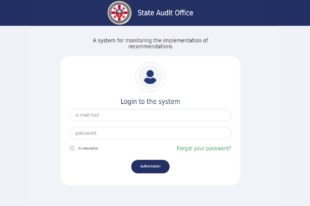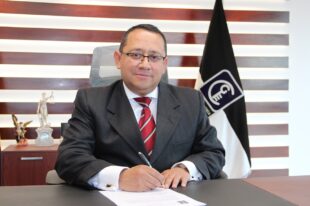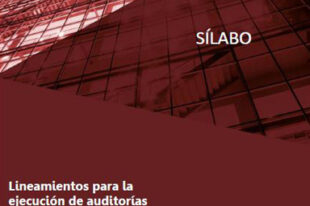INTOSAI Regional Coordination Platform (IRCP) Back Together After Pandemic
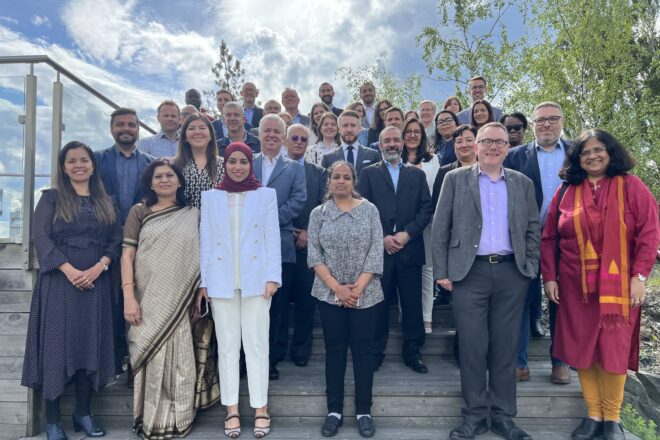
Author: Secretariats of the INTOSAI Capacity Building Committee (CBC) and the INTOSAI Development Initiative (IDI)
For three very interesting, intense and inter-active days in the beginning of June, about 45 participants representing almost all INTOSAI regions met in Oslo for the first time in three years to identify present challenges and regional needs, and to find capacity development initiative gaps or overlaps.
In 2017, the Capacity Building Committee (CBC) and the INTOSAI Development Initiative (IDI) established a single coordination platform for all INTOSAI organs and regional organisations to align common efforts and explore synergies. In the first week of June in 2022, this INTOSAI-Regions Coordination Platform (IRCP) gathered in a hybrid format to discuss INTOSAI’s response to capacity development challenges and opportunities faced by SAIs. IDI – the host of this year’s platform – welcomed participants attending in Oslo, as well as colleagues joining virtually, which made it possible to also participate from home for those unable to travel. This opportunity to discuss as a community representing different working bodies all contributing to SAI capacity development, was highly appreciated and the energy brought into the room by the participants was motivating.
The coordination meeting was aimed at developing a deeper and common understanding of INTOSAI’s strategic goal 2 landscape on capacity development. Goal 2 informs INTOSAI decision-making on sustainable SAI capacity development in support of all INTOSAI members. The CBC, IDI and regional organisations supported by the Professional Standards Committee (PSC), Knowledge Sharing and Knowledge Services Committee (KSC), Policy, Finance and Administration Committee (PFAC) and the General Secretariat identified and discussed SAI capacity development needs and priorities to be addressed in 2023-25, and deliberated on sustainable capacity development support mechanisms. Identified challenges to sustainability, and opportunities to overcome these included SAI leadership commitment, country environment for oversight and accountability, SAI culture, staff retention, ensuring needs-based support and effective coordination, and delivering and measuring sustainable results and impact.
Another outcome of the meeting was a mapping of current and future capacity development initiatives in the following six broad focus areas:
- Competent people
- High quality audits
- High impact audits
- SAI external environment
- SAI internal environment
- Global environment for effective SAI capacity development
Building on this mapping, participants identified areas for future cooperation and actions that could be taken across the INTOSAI community. At a broad level, participants thought all bodies could focus more on addressing common challenges together and documenting and sharing proven solutions. Regarding competent people, key areas identified were creating internationally recognised professions serving the needs of SAIs, human resource management as a driver for performance improvement, and leadership development.
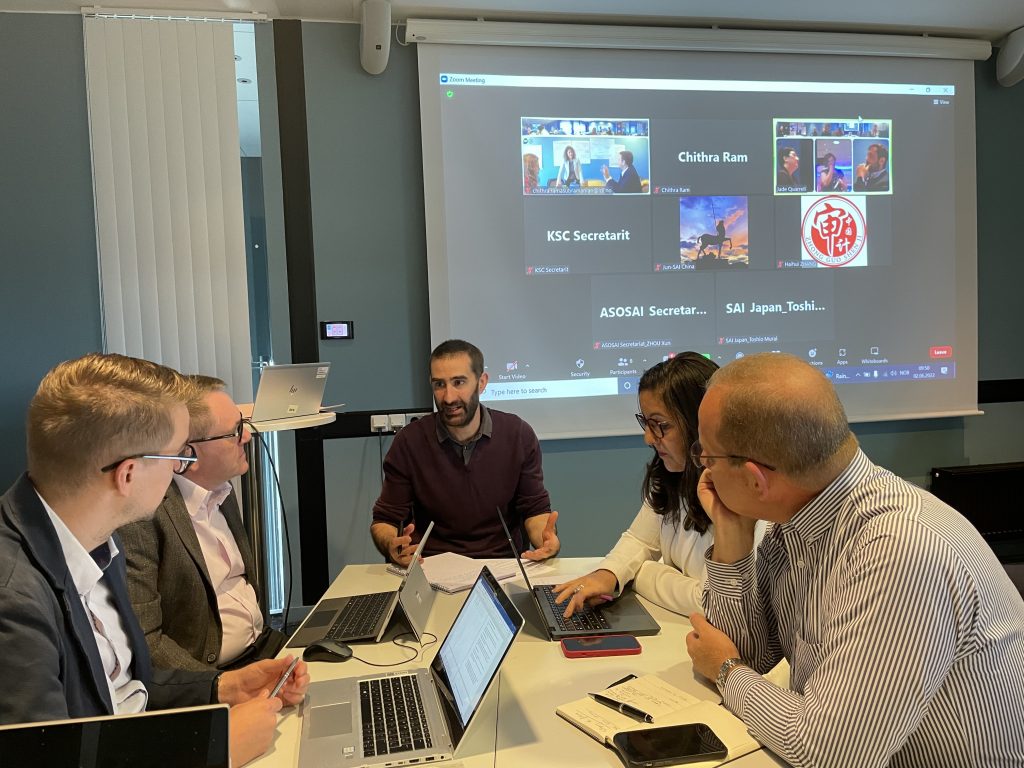
Source: INTOSAI Capacity Building Committee (CBC) and the INTOSAI Development Initiative (IDI)
On high quality audits, ideas identified were around better defining ISSAI compliance, supporting SAI quality management, and building quality feedback loops better into peer supported audits. For high impact audits, a cultural shift towards audit impact was suggested, through better stakeholder engagement and selecting relevant audit topics, leveraging strategic partnerships to bring in topic experts, supporting SAI resilience and agility, and improving the communication and follow-up of audit findings.
For SAI external environment, participants saw the need to explore the adequacy of SAI resourcing, continue communicating the value of SAIs and advocating for SAI independence, and building better partnerships with others in the broader governance environment, at global, regional and country level. Finally on SAI internal environment, it was recognised that SAIs need to better embrace technological change, lead by example in the public sector especially on SAIs holding themselves accountable, and act on the findings of the various SAI assessments conducted.
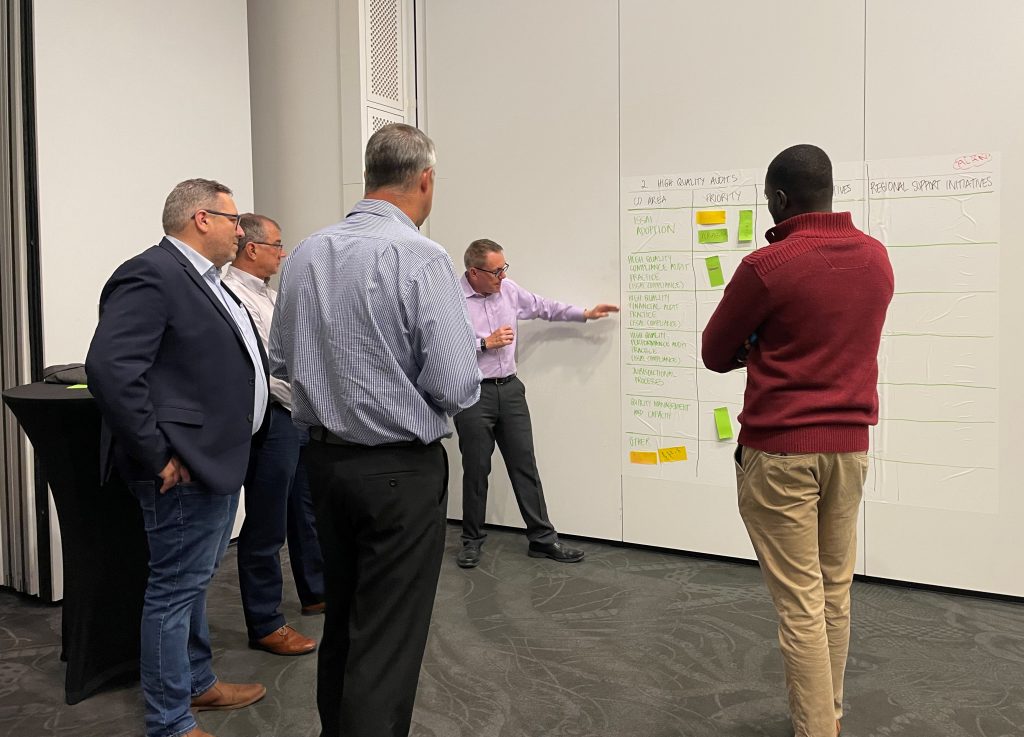
Source: INTOSAI Capacity Building Committee (CBC) and the INTOSAI Development Initiative (IDI)
Arising from the Oslo coordination meeting and in support of INTOSAI’s Strategic Plan for 2023-28, INTOSAI’s key contributors to Goal 2 have agreed on the main components of the 2023-25 Operational Plan. The plan, which is currently being drafted, covers the first three years of INTOSAI’s new strategic plan 2023‑28. After three years – and in concurrence with INTOSAI’s mid-term assessment and its Performance and Accountability Report in 2025 – this Operational Plan will be revised, and an adjusted plan will be adopted for the next three-year period (until 2028).
The IRCP participants left Oslo with a lot of food for thoughts to take back to their home regions.

